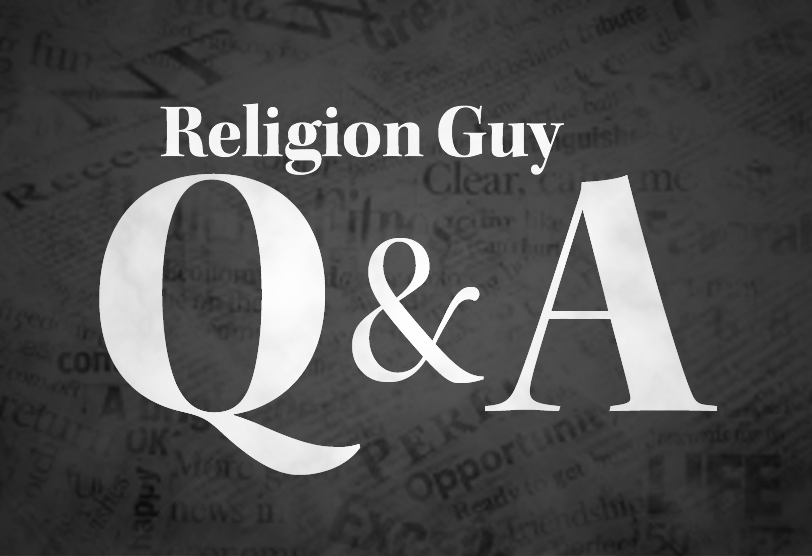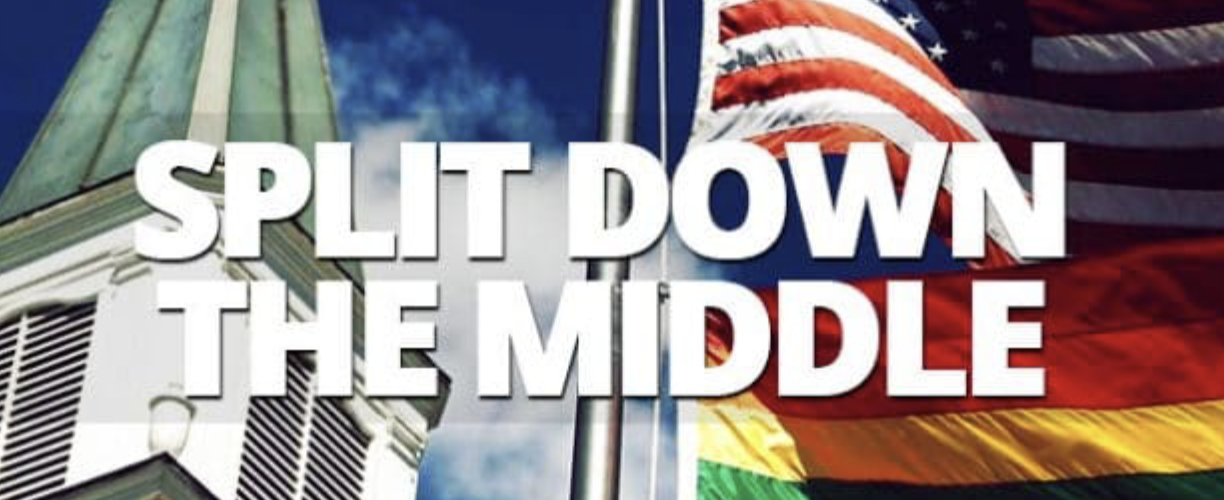
THE QUESTION:
Why is the large United Methodist Church preparing to split in May?
THE RELIGION GUY’S ANSWER:
One of 2020’s major news events occurs May 5-15 when delegates in Minneapolis decide whether and how to break up the large United Methodist Church (UMC). The simple answer to why is that long-running conservative-vs.-liberal differences proved irreconcilable when it comes to sexual morality in general, and homosexuality in particular. But there’s much more to be said.
The stakes are high, since the UMC is America’s second-largest Protestant denomination and biggest of the so-called “mainline” groups, which are long-established, predominantly white, active in ecumenical organizations, and allow more flexibility on belief than conservative “evangelicals.” The UMC has dealt with the gay issue for 48 years, during which membership slid from 10.3 million to 7 million. Continual and enervating haggles doubtless contributed to membership shrinkage in all of “mainline” Protestantism, even as U.S. culture and politics shifted toward gay toleration following the 1969 Stonewall Riots.
The UMC’s debate began soon after it was founded in a 1968 merger between the Methodist Church and the smaller Evangelical United Brethren Church. An official commission was appointed to collate the uniting groups’ teachings on a range of topics and report to the new denomination’s first General Conference in 1972. (The Guy covered this Atlanta event for Time magazine).

The commission proposed approval of the statement that “homosexuals no less than heterosexuals are persons of sacred worth, who need the ministry and guidance of the church in their struggles for human fulfillment, as well as the spiritual and emotional care of a fellowship which enables reconciling relationships with God, with others, and with self. Further, we insist that all persons are entitled to have their human and civil rights ensured.”
Conservatives did not dispute those concepts but were wary, and seemed befuddled during floor debate. Then Texas lawyer Donald Hand jotted down wording, ran it past a state Supreme Court justice, and offered this amendment: “we do not condone the practice of homosexuality and consider this practice incompatible with Christian doctrine.” The spur-of-the-moment insert passed, and remains on the books to this day.
In conscience, both sides rallied. Every four years General Conferences rejected liberal bids to eliminate the UMC’s teaching while conservatives enacted new rules e.g. 1984’s “fidelity in marriage and celibacy in singleness” standard for clergy behavior. Dissenters increasingly defied their church’s stance and married same-sex couples and ordained openly gay and lesbian clergy, including a bishop in 2016. Agonizing ecclesiastical trials resulted.
The fracas culminated in a special General Conference a year ago where traditionalist policy won a narrow (53 percent) but decisive victory, setting the stage for schism. While various future designs were floated, a self-appointed group representing church factions entered professional mediation to devise a deal. On January 3, this group proposed a “Protocol of Reconciliation & Grace Through Separation” for Minneapolis decision.
If approved, the nine-page Protocol will divide up Methodists on the basis of belief. The UMC as such will continue on with a laissez-faire approach to LGBTQ issues. Conservative regional units and local congregations can vote to leave and keep their properties, forming one or more new denominations that maintain tradition. Individual clergy will choose up sides and retain pension assets. The come-outers will get $25 million in startup aid.
There could be important revisions in Minneapolis, but delegates will likely acknowledge some respectful split along these lines is inevitable and necessary. African Bishop John Yambasu, who initiated the mediation, contends Protocol defeat would be “catastrophic” and only bring “more pain and harm to the entire church.”
Though the LGBTQ challenge is the proximate cause of schism, the scenario is far broader.
Continue reading “Why is the large United Methodist Church splitting up?”, by Richard Ostling.












